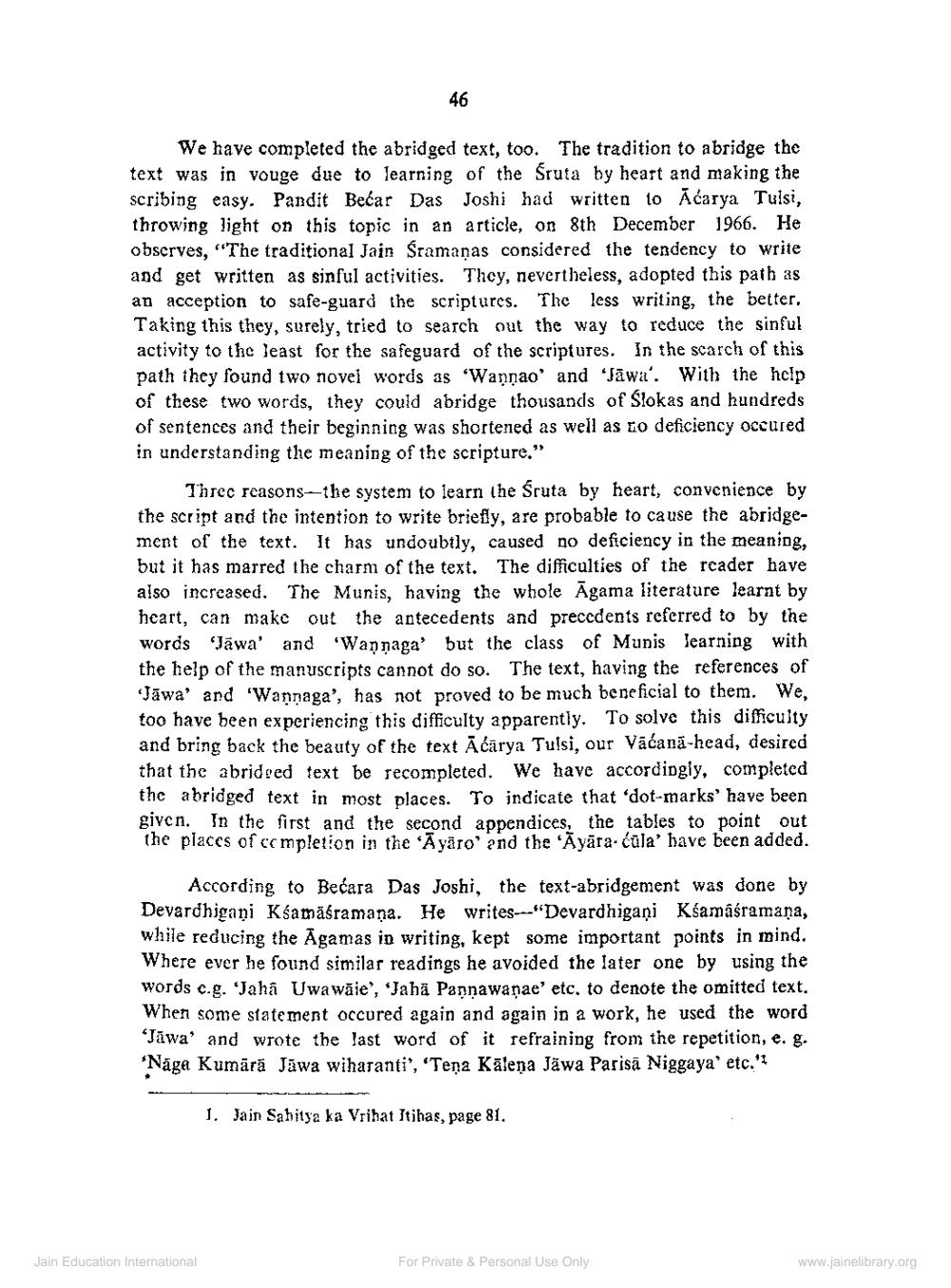________________
46
We have completed the abridged text, too. The tradition to abridge the text was in vouge due to learning of the śruta by heart and making the scribing easy. Pandit Bećar Das Joshi had written to Acarya Tuisi, throwing light on this topic in an article, on 8th December 1966. He observes, "The traditional Jain Sramaņas considered the tendency to write and get written as sinful activities. They, nevertheless, adopted this path as an acception to safe-guard the scriptures. The less writing, the better, Taking this they, surely, tried to search out the way to reduce the sinful activity to the least for the safeguard of the scriptures. In the scarch of this path they found two novel words as 'Wannao' and 'Jāwa'. With the help of these two words, they could abridge thousands of Slokas and hundreds of sentences and their beginning was shortened as well as to deficiency occured in understanding the meaning of the scripture."
Threc reasons--the system to learn the śruta by heart, convenience by the script and the intention to write briefly, are probable to cause the abridgement of the text. It has undoubtly, caused no deficiency in the meaning, but it has marred the charm of the text. The difficulties of the reader have also increased. The Munis, having the whole Āgama literature learnt by heart, can make out the antecedents and precedents referred to by the words Jāwa' and 'Wannaga' but the class of Munis learning with the help of the manuscripts cannot do so. The text, having the references of Jāwa' and 'Wannaga', has not proved to be much beneficial to them. We, too have been experiencing this difficulty apparently. To solve this difficulty and bring back the beauty of the text Ācārya Tulsi, our Vāćană-head, desired that the abridged text be recompleted. We have accordingly, completed the abridged text in most places. To indicate that 'dot-marks' have been given. In the first and the second appendices, the tables to point out the places of completion in the 'Ā yaro' and the 'Ayara.cala' have been added.
According to Bećara Das Joshi, the text-abridgement was done by Devardhigani Kśamāśramaņa. He writes---"Devardhigaņi Kśamāśramana, while reducing the Agamas in writing, kept some important points in mind. Where ever he found similar readings he avoided the later one by using the words c.g. 'Jaha Uwawāie', Jaha Pannawanae' etc. to denote the omitted text. When some statement occured again and again in a work, he used the word “Jāwa' and wrote the last word of it refraining from the repetition, e. g. Näga Kumārā Jāwa wiharanti', 'Tena Kalena Jäwa Parisā Niggaya' etc."
1. Jain Sahitya ka Vrihat Itihas, page 81.
Jain Education International
For Private & Personal Use Only
www.jainelibrary.org




